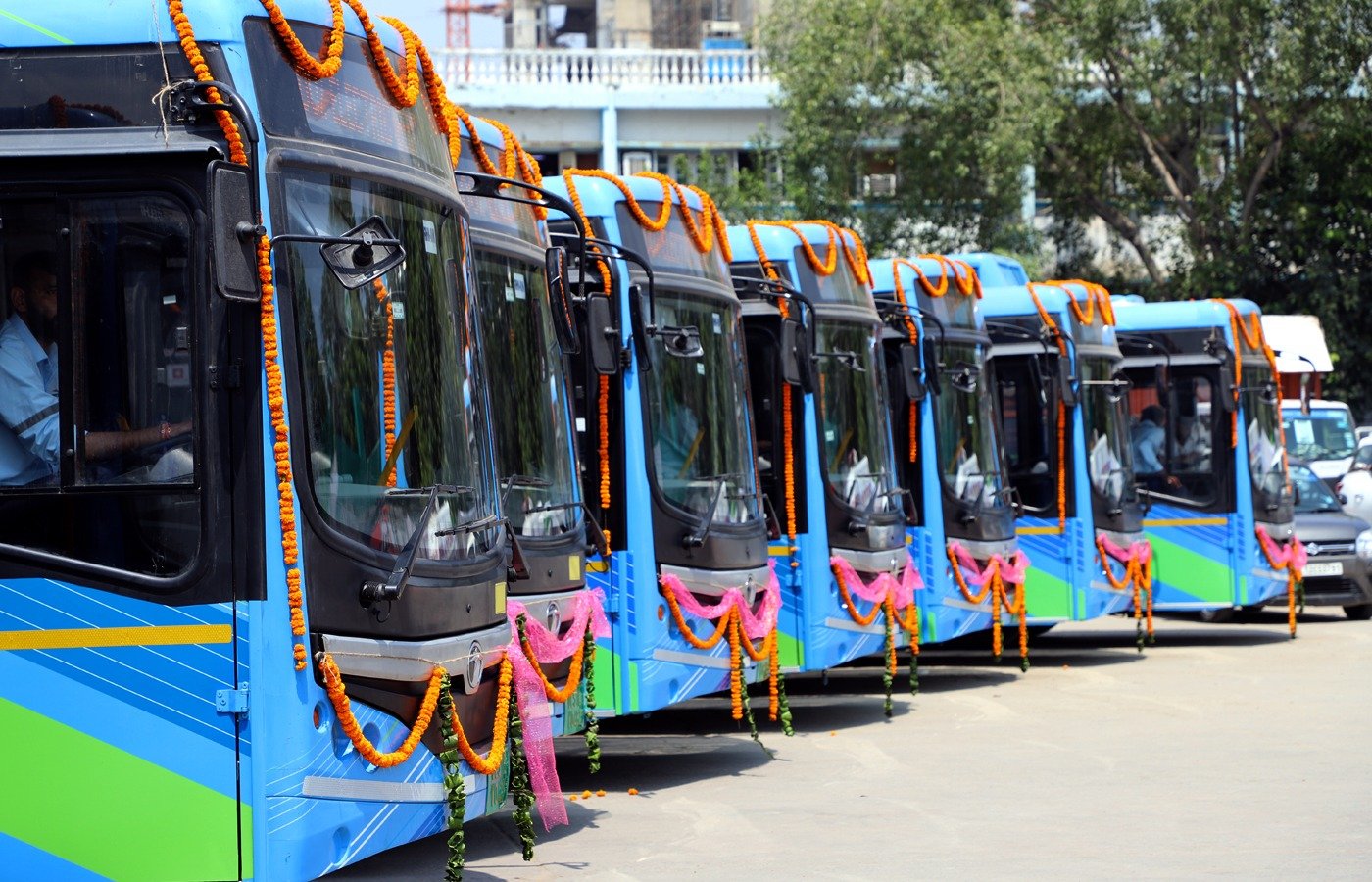News List
DTC to Roll Out Electric Buses with Commercial Ads to Boost Revenue

Delhi Transport Corporation’s (DTC) fleet of electric buses will soon hit the streets with colourful commercial advertisements, a move aimed at bringing in extra revenue for the transport body. The plan, years in the making, had been stalled due to road safety concerns raised by the Delhi Traffic Police.
Under the initiative, around 840 electric buses will be offered to a selected concessionaire through a competitive bidding process. A tender has already been floated, a senior transport department official confirmed.
To ensure advertisements remain socially responsible, the guidelines clearly ban any content that is indecent, objectionable, or promotes racial, caste, community, or ethnic divisions. Ads endorsing drugs, alcohol, tobacco, or the exploitation of women and children are prohibited, along with those depicting cruelty to animals, glorifying violence, promoting lotteries, or showing obscene material. Political party advertisements are also off the table.
A coordination committee will have the authority to reject any ad that violates these standards, safeguarding ethical advertising practices.
The transport department is also reviewing a proposal to allow ads on the more visible right side of buses. If approved, this would come with an additional charge calculated on a pro-rata basis.
The idea isn’t new—back in 2016, DTC had proposed using its low-floor buses for advertising, excluding window and rear glass panels. While the move was initially approved by then-Chief Minister Arvind Kejriwal, Delhi Traffic Police objected, arguing that ads on the right side could distract motorists and increase accident risks. The proposal was rolled back in 2017, with a new limit allowing ads to cover no more than 75% of a bus’s exterior.
DTC’s push to monetise ad space follows the example of other public transport bodies. For instance, Delhi Metro earned ₹441 crore from advertisements in 2015-16, which grew to ₹492 crore in 2016-17—making ads its largest source of non-operational revenue.
With electric buses soon to double as mobile billboards, DTC hopes to strike a balance between raising funds and keeping city roads safe.
